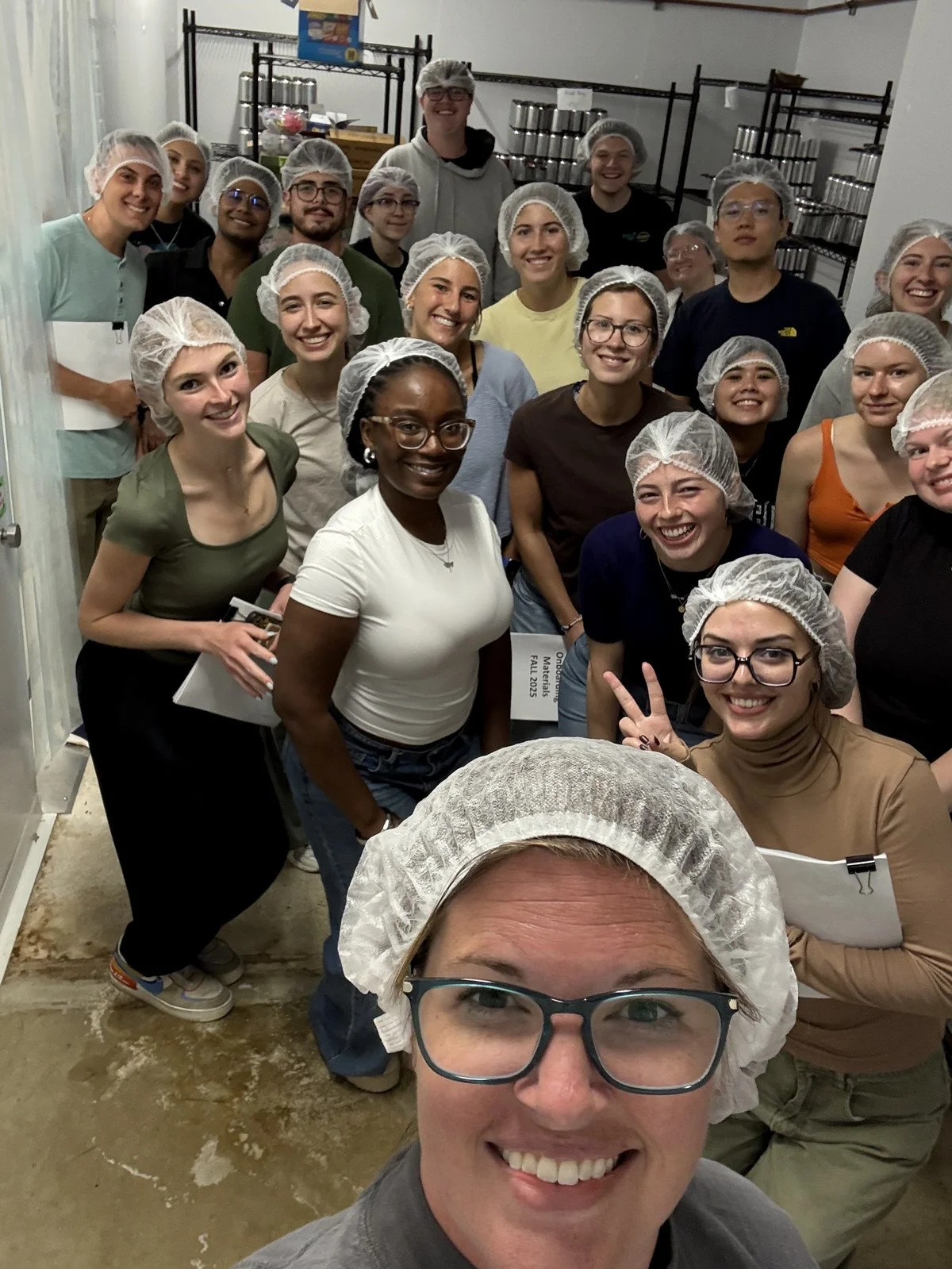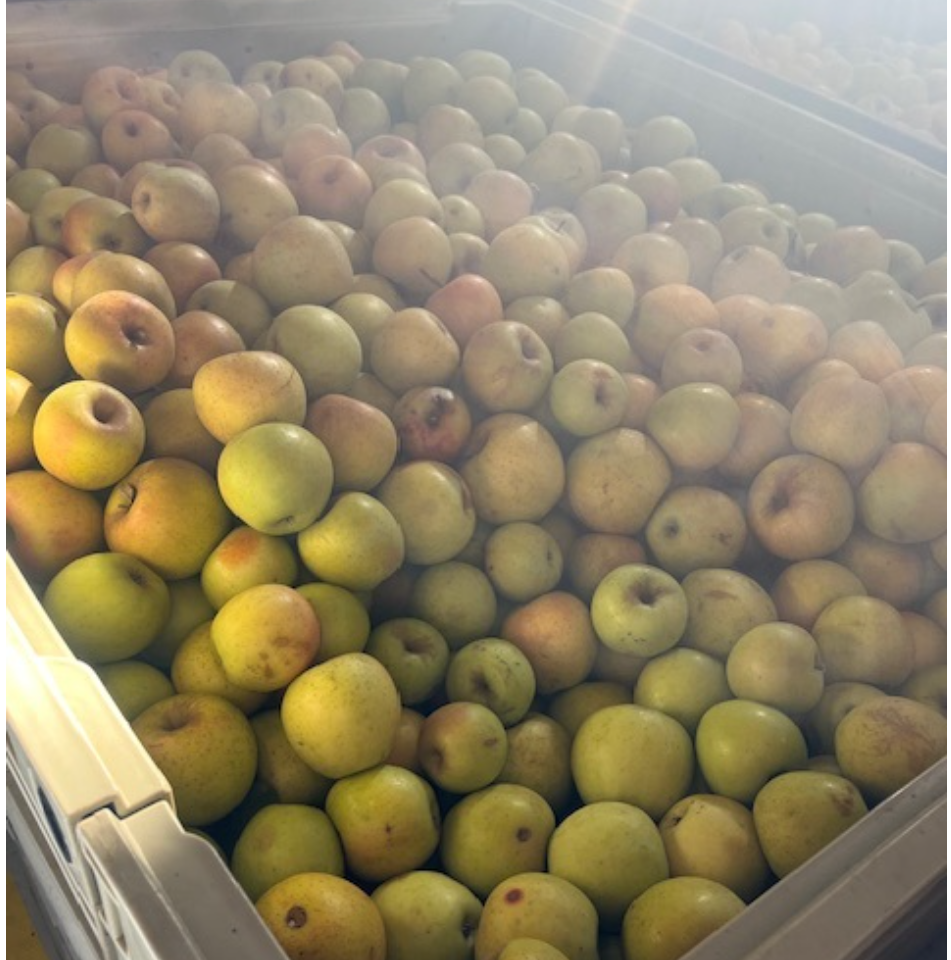Learning as We Scale: Guest Contributor
Guest Contributor
Allison Kingery, Managing Director
Food Entrepreneurship and Manufacturing Institute (FEMI)
Purdue University
My name is Allie Kingery, and I work as the Managing Director for Purdue University's Food Entrepreneurship and Manufacturing Institute (FEMI) in West Lafayette, Indiana. FEMI was established in 2021 and has found its footing as a broad resource to growers and entrepreneurs as we strengthen collaboration among existing food and beverage businesses. FEMI delivers programming, consultation, testing, and growth platforms across a wide variety of products. We leverage facility resources, such as the Food Science Pilot Plant and Skidmore w Development Laboratory, along with expertise from Purdue’s Food Science Concentrations: Food Processing and Technology, Food Safety and Microbiology, and Food Marketing.
I had the privilege of being introduced to Jan Hansen, CEO of Educate Tanzania, Inc (ETI) on one of her trips back to the Purdue campus. In time, Jan requested that our team review a business and operations plan for a pineapple juice processing plant in Karagwe, Tanzania. While faculty on the review team had years of international experience, it was my first professional exposure to a collaboration across the world with the considerations of facility decision, food safety, and quality. What a true joy to have the discussion regarding the plan, transpire live over Zoom to Tanzania, too!
While pineapple and juice processing are the focus with ETI, I saw similarities to the processing of apple juice in my own area of Indiana. We are knee-deep in apples each fall in West Lafayette. For my 15-year career, my dream has been to leverage resources we have at Purdue to take advantage of the bounty of the region. My first job at Purdue was as a chef at the largest dining court on campus. We served 5,000 meals each day. In an effort to use our region’s bounty, I arranged for whole apples from Purdue's Meig’s Horticulture Research Farm to be incorporated into our fresh whole produce offerings. I soon realized that consumers (almost entirely students) were not overwhelmingly interested in apples of varying sizes, colors, and surface imperfections compared to the heavily sorted and graded produce available in their local grocery. So eager to utilize the apples in any way, I made a 50-gallon batch of apple sauce. This was no small task, and as you may guess, the apple sauce wasn't the hit I was hoping for it to be. Even the intense labor to mill out the peels and the seeds couldn’t bring our beautiful rosy, slightly chunky apple sauce in alignment with student expectations compared to industrially produced apple sauce. But at least it was a start.
I see some obvious parallels to food processing in Tanzania.
As I changed roles in the university, I kept the apple mission close. My next role was in the Department of Food Science where I served as academic advisor and course instructor for “The Science of Experimental Cuisine”. This course encouraged students to dig in and create delicious, innovative dishes by pulling in their knowledge of food chemistry, manipulation of flavors and textures, and visual presentation. Of course, I made it a priority to bring students out to the Meigs Farm to harvest apples across any varieties available to us.
Purdue student during 2025 Gold Rush harvest.
Students were expected to design dishes with intention around apples selected based on sugar content and other factors. It was satisfying to be able to share my enthusiasm with students for what grows so well in our own backyard, and to witness their blending of principles of sound nutrition and culinary innovation.
I can imagine that this is the same for Karagwe, Tanzania.
I have learned that this Northwest area of Tanzania grows a variety of robust crops, but that farmers lack transportation and refrigeration to preserve those crops for future use. It has to be crushingly frustrating and demoralizing when Karagwe’s harvests are complete but cannot be preserved or processed into value-added, nutritional products. What a waste to have such bounty at your fingertips, and to have it rot instead of nourish the children, families and community around you. My hope at FEMI is to help Karagwe’s farmers bring the region’s bounty to full use in rural Tanzania, just as I dream of full use of West Lafayette’s apple bounty.
My current role with FEMI is centered around the concept of scaling. We serve entrepreneurs, growers, and food businesses of all sizes as they desire to advance into the next phase of food and beverage production. We meet business leaders “where they are” to support them in benchtop trialing, scaling, data-collecting, trouble-shooting, and advising. I have learned an enormous amount from our professional partners and from students who are included in each step. In our 4 years, we have employed 95 students in paid positions to set up experiments, contribute to problem-solving, suggest new ways to add efficiency, and to clean up after trials. FEMI sees the future of its own scaling through its students.
And this brings us back to apples. What better team to take advantage of thousands and thousands of pounds of apples than eager students and a slightly stubborn managing director bent on creating something of value from the bounty at our fingertips, which has yielded other products such as our university Boilermaker Hot Sauce: Gold Edition and Black Edition.
Students proudly display their bottled hot sauce at Purdue’s annual Fermentation Frenzy.
Our goals avoid the overly-simplistic view that all food processing results in ultra-processed foods and that “food processing” is negative. Instead, FEMI recognizes that unless we live on a plot that grows all of our own food, we already rely on food processing to nourish ourselves and families. FEMI has partnered with companies that provide nutritious products created from locally grown produce, that transform raw products into products with improved shelf-lives and greater market value. FEMI and ETI see the same for Tanzania.
A bounty of produce is arranged primarily from the Purdue Student Farm to be utilized by students to generate hot sauce.
Let me share our successes so far.
SEASON I
· 2024: We started with the Gold Rush: An apple variety created at Purdue.
o late-season variety; only ready for harvest after the first frost.
o a beautiful gold once ripe;
o wonderfully sweet and crisp.
· Year 1: FEMI partnered with Ash & Elm Cider Co.
o Indiana-based business
o Creates hard cider
o regionally sourced
o small-batch collaborations
o nationwide distribution.
· FEMI generated 150 gallons of fresh cider (the most amazing I had ever consumed!)
· then fermented,
· canned,
· sold and distributed through Ash & Elm Cider Co.
SEASON II
· 2025:
· FEMI outgrew our equipment capabilities
· advanced into larger, more frequent chopping and pressing
· collaborated with Wea Creek Orchard, a 7th-generation family local grower
· produced sparkling non-alcoholic cider
· sold and distributed for Wea Creek Orchard “farmers market stand” in addition to weekend events
· Produced 30+ gallons a week
· Sold out part way through market events
Goal: Can the product at a local brewery at scale large enough for Wea Creek to have the product distributed for fall events throughout the state.
Gold Rush apples arrive to Purdue’s Food Science Pilot Plant from Meigs Horticulture Research Farm for juicing.
My hope is that Tanzanian farmers will experience similar successes as they scale their farming and processing operations. The Food Entrepreneurship and Manufacturing Institute at Purdue is realizing a dream that uses the region’s bounty (apples) to make products that benefit various markets: Local, regional and beyond. With processing facilities at our fingertips, this is not only possible, but also a natural fit. When Karagwe, Tanzania has a processing plant at its fingertips, local farmers will have a place to bring their crops and have them made into nutritious juices and so much more. Value-added products are key to prosperity in rural Tanzania. There is true satisfaction in scaling an idea, whether it is pineapple juice or apple cider, Tanzania or United States, food or beverage.
It takes a team to accomplish a dream.
Allie Kingery
Managing Director, Food Entrepreneurship and Manufacturing Institute
Purdue University, West Lafayette, Indiana





